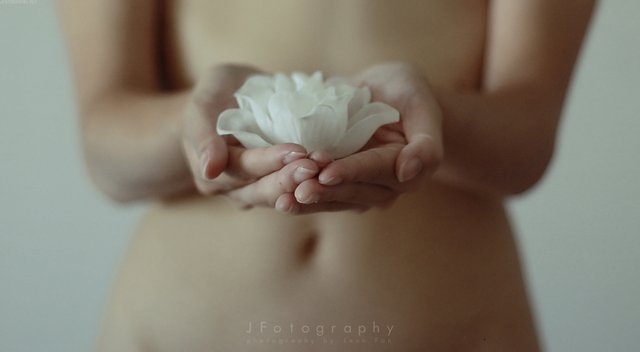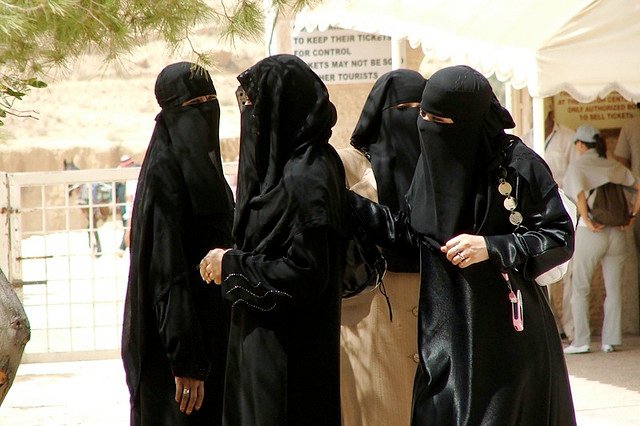Virginity in Different Cultures.
What is virginity?

Before engaging on a discussion of virginity in different cultures, it may make sense to have a clear understanding of various terms related to the concept. A person – whether a girl of boy – is said to be a virgin when he or she has not had sexual intercourse. Because of the patriarchal basis of most societies, the concept of virginity in girls came to be laden with notions of purity, honor and worth whereas the virginity of the boy was not an issue. According to patriarchal constructs of female identity, a woman is a man’s - her father’s or husband’s - possession who has the right to decide whom she can have sex with. Thus, the huge importance of virginity for women was one of the ways of gaining control of the sexual behavior of women.
Traditional notions of virginity focus on whether a woman has an intact hymen. The hymen is a thin membrane that covers the opening of a girl’s vagina and usually tears upon the first sexual intercourse. Thus if a girl bleeds after an intercourse it is assumed that she was a virgin and likewise the absence of bleeding is construed as a sign that she has prior sexual experience. The problem with the idea of virginity centering on an intact hymen is that the membrane may break due to other causes too. Masturbation, intensive exercise or physical activities like horse-riding can cause the hymen to rupture.
Thus a girl who has a broken hymen may be labeled sexually experienced when in fact she may never have had been touched by a man before. Conversely a woman may have an intact hymen but engaged in sexual acts like oral intercourse or penetration by male finger. There is great debate among educationists, the medical, legal and religious community on what exactly determines a sexual act since it varies from one culture and historical period to another.
Virginity in Oriental cultures

Though vastly differentiated by religion, ethnicity and geography, cultures in most parts of South and South-East Asia share similar attitudes towards a girl’s virginity. Sexual experience is absolutely barred before marriage and thus virginity is eulogized in religion, mythology, popular culture like movies and also enforced by lack of advanced education, awareness and economic dis-empowerment. In some Asian societies, virginity is not only important as a form of sexual control but also as a business asset. Some families may wish to move upwards in society by alliance to a family with higher status, to gain favor of an important family or to keep their high caste status or assets and for these purposes they use the daughter’s virginity as a bargaining chip since a virgin bride would definitely fetch a higher price in the marriage market as opposed to a sexually-experienced one.
For all these reasons women in Asian countries wait the longest to have sex, that is usually after marriage which in modern times is legally fixed after eighteen years. An article in The Economic Times1 points towards the trend according to which people in Asian countries lose their virginity at a much older age than those in the West. Malaysians were the oldest to lose their virginity at 23.0 years old, followed by Indians at 22.9, Singaporeans at 22.8, Chinese at 22.1, Thais at 20.5, Hong Kongers at 20.2 and Japanese at a slightly lower 19.4 years. Though the figures are for both men and women, it is a pointer to the fact that virginity is still highly valued in Oriental cultures.
Islamic cultures

Again Islamic cultures are widely differentiated by language, geography and ethnicity but since almost all take their social and moral laws from the Islamic holy book of Koran, these lay supreme importance on virginity of girls. In many Islamic societies, if a girl loses her virginity before marriage, her family is allowed by the law of the land to punish her physically and even kill her. This is because notions of family honor and shame are so intrinsically associated with a girl’s virginity that personal affection and sexual choice do not matter at all. Premarital sexual intercourse is described as Zina in Sharia Law which prescribes punishments for both Muslim and non-Muslim men and women for the act as interpreted from the Qur'an and the Hadith.
African cultures

Traditionally African societies have also laid great emphasis on virginity of women before marriage. African society, virginity was something to be proud of. Sengas or paternal aunts were charged with giving chastity talks to girls from a young age. Among other repercussions for the loss of virginity before marriage, girls would have to face social rejection, excommunication from family if not physical punishment. While earlier such injunctions regarding virginity were the consequence of a patriarchal system, now increasing Pan-Islamic influence has renewed the emphasis on virginity. Above all the ravages of AIDS and teen pregnancies that African culture has suffered has brought virginity back into focus, with many society and culture leaders insisting that enforcing virginity before marriage is one of the ways to prevent the spread of AIDS and teen pregnancies.
Catholic Culture

While Islamic prohibition of pre-marital sex, especially with regard to women, has resulted in a unifying position on virginity in Islamic cultures, similar injunctions from Catholic Church has not led to a homogenous position of virginity in cultures which are predominantly Catholic. South American cultures are mainly Catholic but countries like Brazil are far more accepting of pre-marital intercourse; here it is no important for girls to be virgins before marriage. The same separation of sex and religion can be seen in other Catholic cultures like in Italy, France, Belgium though certain rural pockets in Greece and other Mediterranean cultures may still favor the idea of girls being virgins till marriage. The Catholic Church’s attitude to virginity can be best understood in the idealization of Virgin Mary – unlike Asian and Islamic cultures, female virginity is not equated with family honor or bargaining counter rather with moral and religious purity. Holy virgins are female saints who took vows be a spouse of Christ and are held in high regard in Catholic society. That virginity exists more as a notion of purity in Catholic religion is further proved by the fact that not only sexual intercourse but even sexual act or lewd behavior is deemed unchaste by the Church, unsuitable behavior for virgins.
Modern western culture

The long separation of religion and sexuality in modern western culture has meant that virginity is no longer idolized in religious terms. Also greater female emancipation has put sexual choices firmly in the hands of women themselves. As a result of all this, in countries like US, Canada, Australia, Scandinavian and other West European regions, women have the freedom to have sex when and with whom they want. The notion of virginity as supreme virtue of a bride is thus no longer relevant and even men do not expect their marital partners to be virgins. Indeed in many of these societies, a girl or guy who is a virgin till marriage is sees as somewhat of an oddity, perhaps as a person with some sexual or personal issues which have prevented him/her from engaging in something as normal as sex.
Great in depty
Thanks friend..!
Great content.
thanks...!